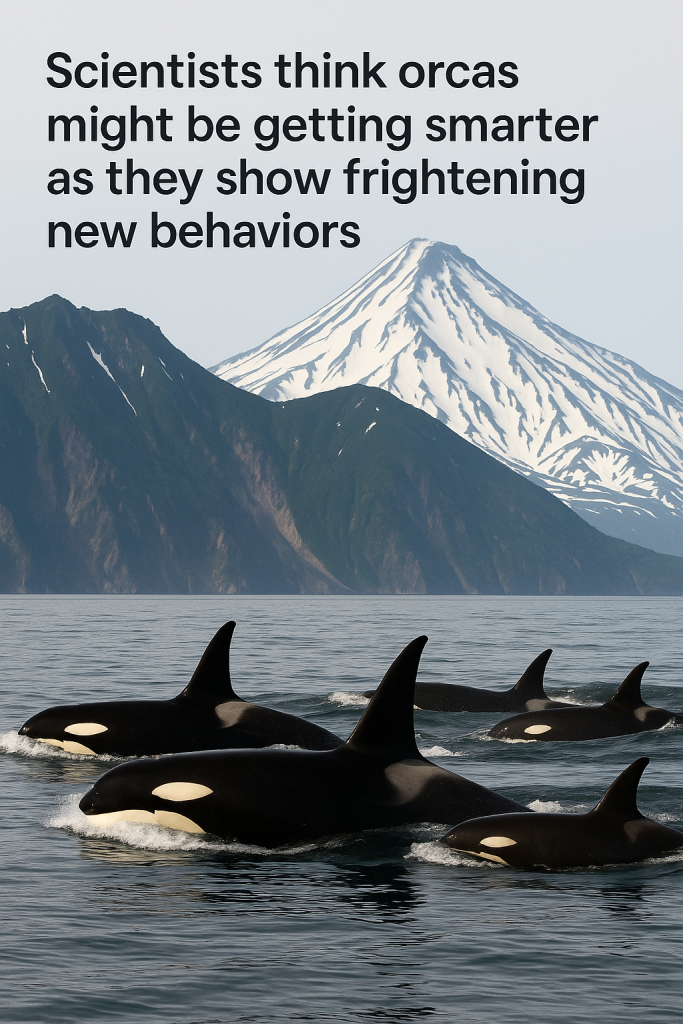Recent observations by marine biologists reveal that orcas, also known as killer whales, may be exhibiting a dramatic increase in cognitive abilities. This emerging intelligence is reaching levels that experts describe as both fascinating and unsettling, as the cetaceans display behavior patterns previously unseen in the wild.
Orcas have long been recognized for their complex social structures and advanced hunting techniques, but 2024 studies indicate a new chapter in their evolution. Researchers tracking various pods in different oceanic regions report that orcas are not only refining their communication skills but also engaging in novel and sometimes frightening behaviors that suggest heightened problem-solving capacity and adaptability.
Among the most notable developments is the orcas’ apparent ability to innovate during hunts. Scientists have documented pods employing intricate cooperative tactics that go beyond the known wave-washing and carousel feeding methods. In some cases, the animals have been observed manipulating their environment and prey in unprecedented ways, including strategic and prolonged ambushes that imply advanced forward planning.
Beyond hunting, orcas are demonstrating increased curiosity and interaction with human objects and vessels, leading to concerns over escalating encounters at sea. These interactions sometimes border on aggressive, with reports of orcas ramming boats or disabling fishing gear, behaviors scientists had rarely witnessed before. The escalation in such actions points to higher cognitive engagement, but also potential risks for both orcas and humans.
Experts theorize that this rise in intelligence might be a response to environmental pressures like changing prey availability, pollution, and habitat disruptions. As food sources become more scarce or unpredictable, orcas appear to be evolving their survival strategies rapidly. This adaptability underscores their remarkable evolutionary plasticity but also raises questions about what triggers these behavioral shifts.
Another striking observation involves social learning. Orca pods are now seen passing on new hunting techniques and behaviors more rapidly across generations and even between pods, indicating an enhanced cultural transmission mechanism. This ability to share and adopt innovative behaviors is a hallmark of advanced intelligence and mirrors traits seen in some primate species.
The new findings challenge previous assumptions that orca behavior was relatively stable over time. Instead, scientists now believe these marine mammals are entering a phase of accelerated cognitive evolution, spurred by both environmental necessity and intrinsic intelligence. However, the unpredictable nature of some of their emerging behaviors has prompted marine biologists and conservationists to advocate for intensified research efforts and updated safety protocols for ocean interactions.
As orcas continue to showcase this remarkable intelligence, understanding the full implications becomes critical. These marine giants may hold keys to broader insights about intelligence in non-human species and the impact of rapidly changing ecosystems on animal behavior. For now, their increasingly complex and sometimes unsettling conduct is a reminder of the wildness beneath the waves—a world where survival drives minds to new heights.



